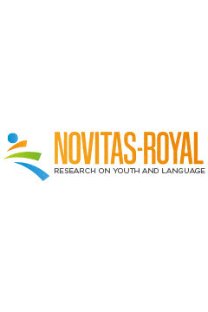Aural Pragmatic Comprehension
Tümüyle anlama, sadece sözcük bilgisi ya da sözdizimi ile değil, dilin edimsel yönü ile de yakından ilgilidir. Bu çalışma, ikinci dil öğreniminde edimsel anlamanın temellerini araştırmaya çalışmaktadır. Bu çalışmada, edimsel anlama, sözeylem ve konuşmada sezdirimlerin anlaşılması olarak ele alınmış, edimsel anlama ile yazma ve konuşma edimleri arasındaki ilişki aşamalı regresyon çözümlemesi ile araştırılmıştır. Çalışmanın sonuçları yazma edimi ve edimsel anlama arasında istatistiksel olarak anlamlı (p
Overall comprehension is closely related not only to the knowledge of words and syntax, but also the pragmatic concerns of the discourse. This study is an attempt to explore the basic constructs of aural pragmatic comprehension in second language (L2) learning. Taking pragmatic comprehension as the recognition of speech acts and conversational implicatures, this study compares pragmatic comprehension levels and the performances in oral and written production using a hierarchical regression analysis. The results indicate a significant relationship between writing performance and pragmatic comprehension (p<0.01) and a positive relationship, though not statistically significant, between oral performance and aural pragmatic comprehension, all of which propose an intimate link between linguistic production and pragmatic gain. Additionally, writing appears to be a source of both bottom-up and top down processing that indicates interactive processing of comprehension.
___
Austin, J. L. (1976). How to do things with words. Oxford : Oxford University PressBorg, S. (1999). Studying teacher cognition in second language grammar teaching. System. 27, 19-31.
Bouton, L. (1994). Conversational implicature in a second language: Learned slowly when not deliberately taught. Journal of Pragmatics, 22, 157-167.
Carrell, P.L. & J. Eisterhold, (1983). Schema theory and ESL reading pedagogy. TESOL Quarterly, 17, 553-573.
Carrell, P. L. (1988). Interactive text processing: Implications for ESL/ second language reading classrooms. Cambridge: CUP.
Doğançay-Aktuna, S., & Kamışlı, S. (1995). Corrections in Turkish: Sociolinguistic analysis and cross-cultural comparison. Boğaziçi University. (ERIC Document Reproduction No. ED 390 285).
Erbert, L.A & K. Floyd, (2004). Affectionate Expressions As Face-Threatening Acts: Receiver Assessments Communication Studies
Fang, X. (2008). Listening comprehension in EFL teaching US-China Foreign Language January Volume 6, No.1 ISSN1539-8080, USA Retrieved on Jan. 13, 2008 http://www.linguist.org.cn/doc/uc200801/uc20080105.pdf
Fromkin, V, Rodman, R., & N. Hyams. (2003). An Introduction to Language. Boston: Thomson/Heinle.
Garcia, P. (2004). Developmental Differences in Speech Act Recognition: A Pragmatic Awareness Study. Language Awareness, 13(2), 96–115.
Goodman, K. (1967): Reading: A psychological guessing game. Journal of the Reading Specialist, 6, 35-126.
Grabe, W. (1993). Discourse Analysis and Reading Instruction In Tom Miller (Ed.) Functional Approaches to Written Text: Classroom Applications. pp. 2-15 Washington: USIS.
Grice, H. P. (1975). Logic and Conversation. In P. Cole & J. Morgan (eds.). Syntax and Semantics, 3, Academic Press, pp. 41-58.
Kasper, G.(1984). Pragmatic Comprehension in Learner Native Speaker Discourse. Language Learning, 34(4), 1-20.
Jucker A. H., & I. Taavitsainen. (2008). Speech acts now and then: Towards a pragmatic history of English. Speech Acts in the History of English. In A. H. Jucker & I. Taavitsainen (eds.). New York: John Benjamins Publishing.
Kasper, G., & M. Dahl. (1991). Research methods in Interlanguage Pragmatics Studies in Second language Acquisition. 18, 149-169.
Kıymazarslan,V., N. Alagözlü, & N. Mirzeyeva. (2005). Listening Booth for Listening Practice. Ankara: Seçkin Yayıncılık.
Murphy, J. M. (1991). Oral Communication in TESOL: Integrating Speaking, Listening, and pronunciation. TESOL Quarterly, 25(1), 51-74.
Niezgoda, K., & C. Röver. (2001). Pragmatic and Grammatical Awareness: A function of learning environment. In Kenneth R. Rose and Gabriela Kasper (eds.). Pragmatics in Language Teaching (pp. 63-79). Cambridge: Cambridge University Press.
Schulz, R. A. (1996). Focus on form in the foreign language classrooms. In M. Hughes (Ed.), Perceptions of Teaching and Learning. Clevedon: Multilingual Matters.
Saraç-Süzer, H. S. (2007). Teacher Knowledge on Grammar Teaching: A Case Study. Hacettepe Üniversitesi Eğitim Fakültesi Dergisi 32, 255-265.
Tsui, A. B. M., & J. Fullilove. (1998). Bottom-up or Top-down Processing as a Discriminator of L2 Listening Performance. Applied Linguistics 19(4), 432-451. Oxford: Oxford University Press.
Yule, G. (1996). Pragmatics. Oxford: Oxford University Press.
- ISSN: 1307-4733
- Yayın Aralığı: Yıllık
- Başlangıç: 2007
- Yayıncı: -
Sayıdaki Diğer Makaleler
Learner Experience Using Self-Instructed CALL: Methodological and Learner Insights
Should We Use American English to Improve Students' Listening Skills?
Self-Efficacy in EFL: Difference among Proficiency Groups and Relationship with Success
Filiz Yalçın TILFARLIOĞLU, Emrah CİNKARA
